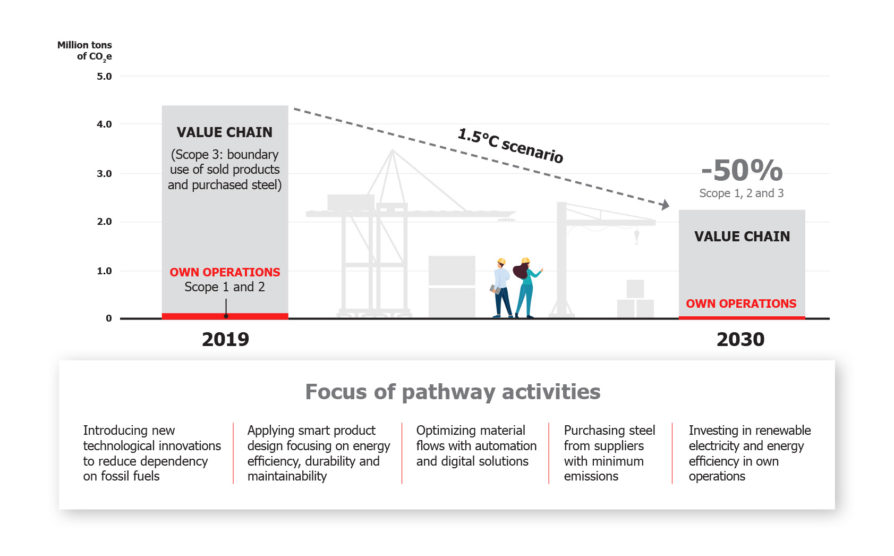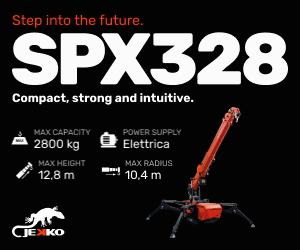)
Konecranes presents new climate targets
The latest climate research proves an urgent need to cut emissions in order to limit global warming to 1.5°C. Konecranes wants to be a part of the solution and has announced new climate targets that will target emissions in both its own operations and its value chain. The new targets support Konecranes’ efforts to cut emissions, further develop its low-carbon portfolio and mitigate climate risks.
The new targets follow Konecranes’ signing of the Science Based Targets initiative (SBTi) commitment in December 2020. The targets have been validated by SBTi as being in line with limiting global warming to 1.5degC.
Konecranes commits to reduce its Scope 1 and 2 emissions by 50% by 2030. This is achievable by investing into renewable electricity and improving fleet fuel efficiency and the energy efficiency of production processes. For Scope 3, Konecranes aims to reduce absolute carbon emissions by 50% by 2030, encompassing the use of sold products and steel-related purchases. The targets cover over 70% of Konecranes’ value chain emissions. As a supportive action, Konecranes will also fully offset flight emissions.
Teo Ottola, CFO and interim CEO at Konecranes says, “Konecranes is a sustainability pioneer in the industry, and the new targets take our ambitions even further. We are in a unique position to help our customers transition towards a low-carbon future by providing solutions that accelerate decarbonization and advance electrification.”
Konecranes incorporates climate requirements in smart product design, continues to seek new technologies that cut the dependency on fossil fuels, optimises material flows with digital solutions, cooperates with suppliers to reduce the overall emissions related to steel, and invests in renewable electricity as well as overall energy efficiency.
Anniina Virta-Toikka, head of sustainability at Konecranes, says, “Emission levels need to be halved by 2030 to limit global warming to 1.5degC. Konecranes is fully committed to do its share and to be transparent about its actions and progress going forward.”
About the Science Based Targets initiative (SBTi)
The Science Based Targets initiative (SBTi) helps companies establish science-based targets to reduce greenhouse gas emissions.
Targets adopted by companies to reduce greenhouse gas emissions are considered to be science-based if they are in line with the latest climate science on meeting the goals of the Paris Agreement to limit global warming to well below 2degC compared to pre-industrial levels and to pursue efforts to limit global warming to 1.5degC. SBTi is a collaboration between CDP, United Nations Global Compact (UNGC), World Resources Institute (WRI) and World Wildlife Fund (WWF).











